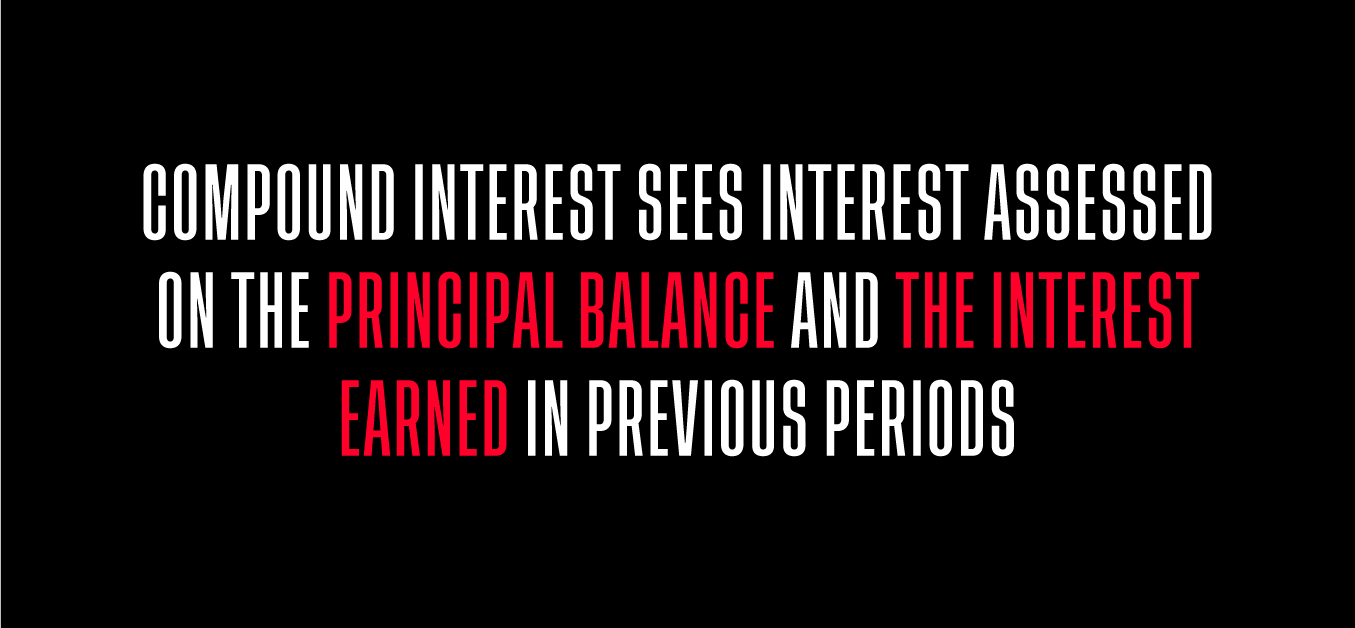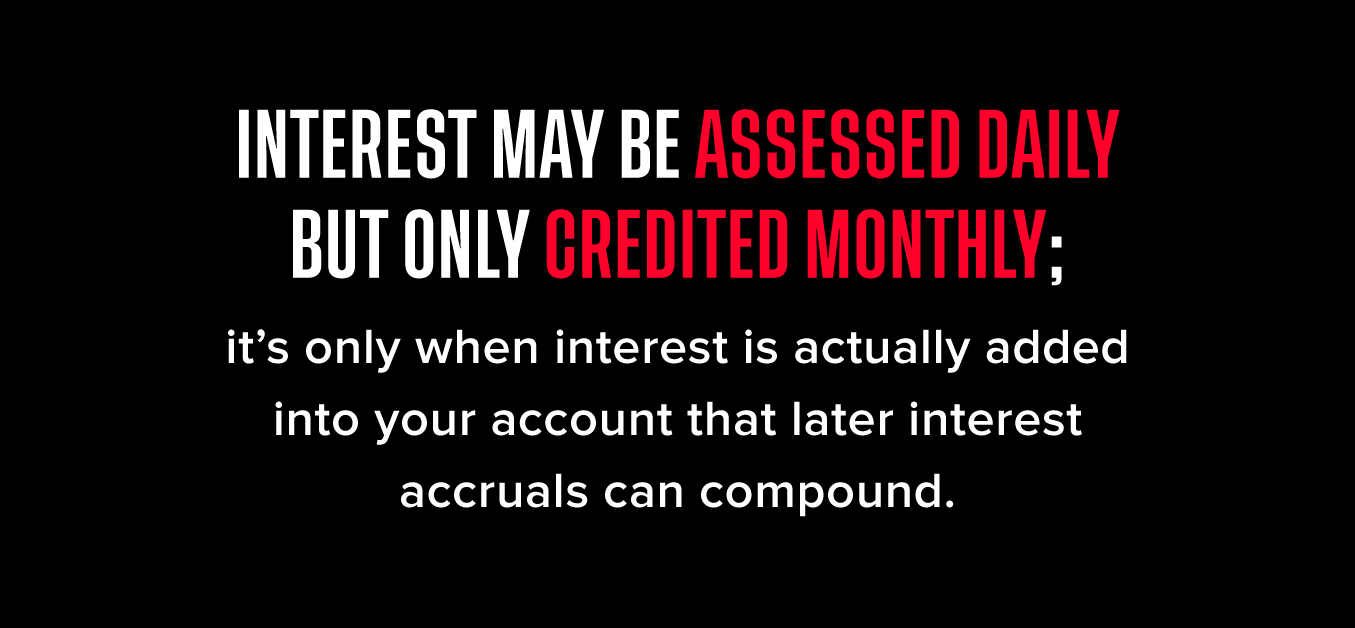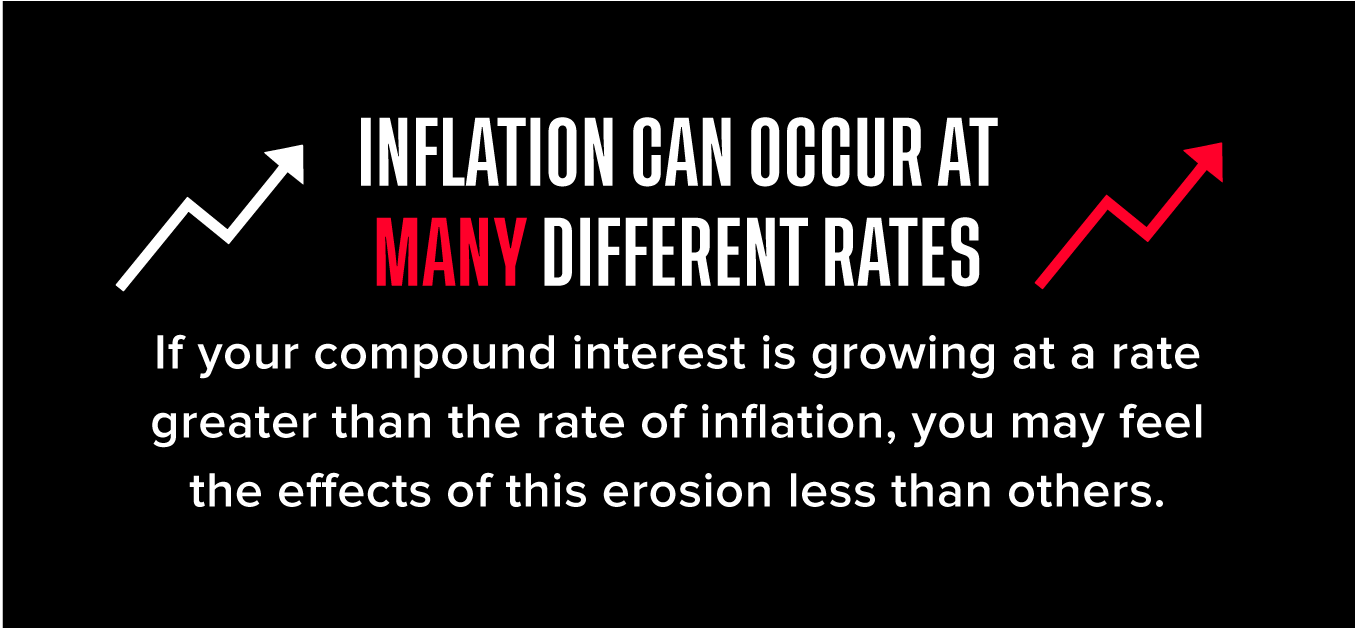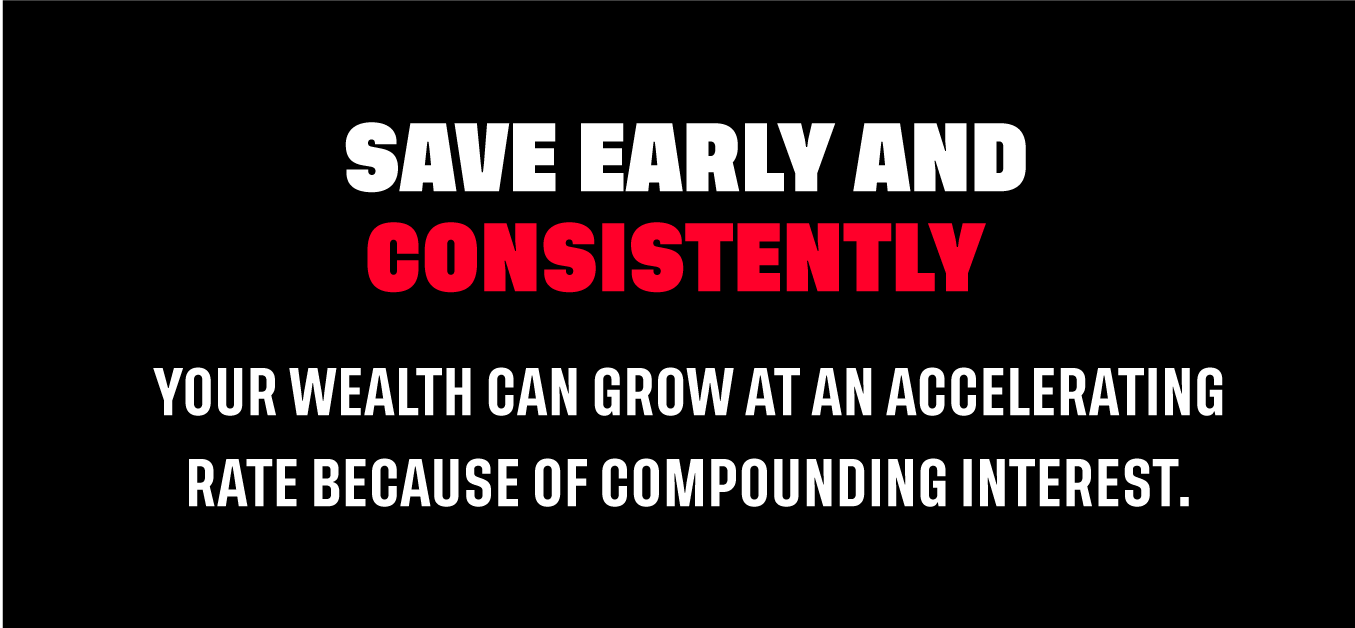What is Compound Interest?
We’ve all heard of it. But what the hell is it?
Let’s get back to basics! This series unpacks commonly misunderstood terms so you can level up your financial vocab—and your money game.
Today: what in the hell is compound interest?
What is Compound Interest?
Google it right now if you wanna get spooked. Why? Because *this* is compound interest:
A = P (1 + rn)nt
Where:
P is the principal amount
r is the annual nominal interest rate written as a decimal
n is the number of times every year the interest is compounded, and
t is the number of years.
And A is the answer. Or something.
Here’s the deal: we want everyone to have as much knowledge as they can. We shouldn’t simplify or sugar coat financial concepts because that hinders our ability to make empowered, informed decisions about our own financial wellbeing.
However.
Math is hard sometimes. When faced with that equation, the smooth little brain in this writer’s head shuts down. So, that equation describes what compound interest is—but let’s find another way to say it, for my sake.

Compound Interest Explained
Compound interest can be explained in contrast to simple interest.

In cases of simple interest, interest is earned only on a principal amount. So every day, month, or year, only the money you put into your account will accumulate interest.
Compound interest is different. Instead of earning interest exclusively on the principal balance, compound interest sees interest assessed on the principal balance and the interest earned in previous periods. Interest on interest. Stacks on stacks.
If concerning a shorter period of time and a smaller principal balance, the difference between the two can seem negligible.
But if you extrapolate this premise out over the course of years—especially with regular contributions in the form of deposits—you’ll see your savings grow faster than with simple interest.
Things to Know About Compound Interest
Generally, compound interest is considered to be better than simple interest because it allows your money to grow at a faster rate. But there are a few factors that you should take into consideration when trying to account for how compound interest could impact your finances.
Frequency of Compounding
The rate at which interest is assessed may impact how fast your money will grow.

Common rates include daily, weekly, monthly, and annually assessed interest. Many financial institutions offer promotional rates on products like high interest savings accounts, where a higher interest rate is assessed on one schedule for several months before settling into less frequent assessments of a lower interest rate.
Further, interest may be assessed daily but only credited monthly; it’s only when interest is actually added into your account that later interest accruals can compound.
The real differences these schedules will make for your money is negligible for lower principal balances. If you’re working with larger principals, it’s worth examining exactly how your interest may be compounding.
Compound Interest and Inflation
Inflation is what occurs when the price of a wide variety of consumer goods increases over time, effectively decreasing the value of your money.

If you have a $10 grocery basket that, over the course of a year, rises to $15, you’ll have to spend more units of your currency, dollars for example, to purchase the same goods. This is why inflation is said to “erode” wealth.
Inflation can impact our savings, too. If you saved $100,000 for a fancy car, but because of inflation, the price of that car rose to $200,000, you’d be pretty miffed. Your hard earned and diligently saved cash wouldn’t be worth what it used to be—not in real terms.
Compounding interest on our savings and investments can help counteract this erosion of value. Inflation can occur at many different rates—there’s even negative inflation. But if your compound interest is growing at a rate greater than the rate of inflation, you may feel the effects of this erosion less than other folks.
Compound Interest and Loans
There’s also a downside to compound interest. Compound interest benefits the investor—or the lender—in a transaction. When you invest in certain accounts, you benefit from your interest building on itself.
But when someone loans you money, the interest rate they charge you can also compound.
You know what they say. You either die a hero or live long enough to become the villain.
This is why many people elect to focus on paying down their loan balance as quickly as they can—so that the interest they’re charged, compounding or not, will decrease over time. Compounding interest on loans is not something you want to let get away from you, because by its very definition, the amount you owe will increase at a faster rate over time. Bad news bears!
The Power of Compound Interest
Compounding interest is the mechanism that underscores many strategies for building wealth. By starting to save early and consistently, your wealth can grow at an accelerating rate because of compounding interest. This is why we encourage people to start saving early. Because when it comes to compound interest, having time—and lots of it—could make all the difference.

There you have it! Just a little crash course in the basics of compound interest.
Speaking of which… When was the last time you made a contribution to your investments? Well, there’s no time like the present. Get your compound interest working for you!
Sign-up for your free MogoAccount to access more tips and lessons on investing, plus the best financial tools!
| Sign Up |
This blog is provided for informational purposes only, isn’t intended as investment advice, and isn’t meant to suggest a particular investment or strategy is suitable for any particular investor. If you’re unsure about an investment, you may wish to obtain investment advice from a qualified professional.